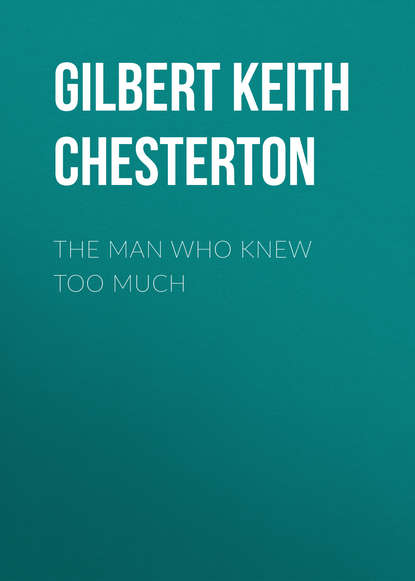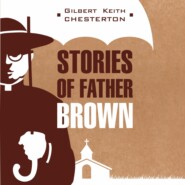По всем вопросам обращайтесь на: info@litportal.ru
(©) 2003-2024.
✖
The Man Who Knew Too Much
Настройки чтения
Размер шрифта
Высота строк
Поля
And, looking up the river once more, they saw, dark against the sunset reflections, the figure of James Bullen stepping hastily and rather clumsily from stone to stone. Once he slipped on a stone with a slight splash. When he rejoined the group on the bank his olive face was unnaturally pale.
The other four men had already gathered on the same spot and almost simultaneously were calling out to him, "What does he say now?"
"Nothing. He says – nothing."
Fisher looked at the young man steadily for a moment; then he started from his immobility and, making a motion to March to follow him, himself strode down to the river crossing. In a few moments they were on the little beaten track that ran round the wooded island, to the other side of it where the fisherman sat. Then they stood and looked at him, without a word.
Sir Isaac Hook was still sitting propped up against the stump of the tree, and that for the best of reasons. A length of his own infallible fishing line was twisted and tightened twice round his throat and then twice round the wooden prop behind him. The leading investigator ran forward and touched the fisherman's hand, and it was as cold as a fish.
"The sun has set," said Horne Fisher, in the same terrible tones, "and he will never see it rise again."
Ten minutes afterward the five men, shaken by such a shock, were again together in the garden, looking at one another with white but watchful faces. The lawyer seemed the most alert of the group; he was articulate if somewhat abrupt.
"We must leave the body as it is and telephone for the police," he said. "I think my own authority will stretch to examining the servants and the poor fellow's papers, to see if there is anything that concerns them. Of course, none of you gentlemen must leave this place."
Perhaps there was something in his rapid and rigorous legality that suggested the closing of a net or trap. Anyhow, young Bullen suddenly broke down, or perhaps blew up, for his voice was like an explosion in the silent garden.
"I never touched him," he cried. "I swear I had nothing to do with it!"
"Who said you had?" demanded Harker, with a hard eye. "Why do you cry out before you're hurt?"
"Because you all look at me like that," cried the young man, angrily. "Do you think I don't know you're always talking about my damned debts and expectations?"
Rather to March's surprise, Fisher had drawn away from this first collision, leading the duke with him to another part of the garden. When he was out of earshot of the others he said, with a curious simplicity of manner:
"Westmoreland, I am going straight to the point."
"Well?" said the other, staring at him stolidly.
"You have a motive for killing him," said Fisher.
The duke continued to stare, but he seemed unable to speak.
"I hope you had a motive for killing him," continued Fisher, mildly. "You see, it's rather a curious situation. If you have a motive for murdering, you probably didn't murder. But if you hadn't any motive, why, then perhaps, you did."
"What on earth are you talking about?" demanded the duke, violently.
"It's quite simple," said Fisher. "When you went across he was either alive or dead. If he was alive, it might be you who killed him, or why should you have held your tongue about his death? But if he was dead, and you had a reason for killing him, you might have held your tongue for fear of being accused." Then after a silence he added, abstractedly: "Cyprus is a beautiful place, I believe. Romantic scenery and romantic people. Very intoxicating for a young man."
The duke suddenly clenched his hands and said, thickly, "Well, I had a motive."
"Then you're all right," said Fisher, holding out his hand with an air of huge relief. "I was pretty sure you wouldn't really do it; you had a fright when you saw it done, as was only natural. Like a bad dream come true, wasn't it?"
While this curious conversation was passing, Harker had gone into the house, disregarding the demonstrations of the sulky nephew, and came back presently with a new air of animation and a sheaf of papers in his hand.
"I've telephoned for the police," he said, stopping to speak to Fisher, "but I think I've done most of their work for them. I believe I've found out the truth. There's a paper here – " He stopped, for Fisher was looking at him with a singular expression; and it was Fisher who spoke next:
"Are there any papers that are not there, I wonder? I mean that are not there now?" After a pause he added: "Let us have the cards on the table. When you went through his papers in such a hurry, Harker, weren't you looking for something to – to make sure it shouldn't be found?"
Harker did not turn a red hair on his hard head, but he looked at the other out of the corners of his eyes.
"And I suppose," went on Fisher, smoothly, "that is why you, too, told us lies about having found Hook alive. You knew there was something to show that you might have killed him, and you didn't dare tell us he was killed. But, believe me, it's much better to be honest now."
Harker's haggard face suddenly lit up as if with infernal flames.
"Honest," he cried, "it's not so damned fine of you fellows to be honest. You're all born with silver spoons in your mouths, and then you swagger about with everlasting virtue because you haven't got other people's spoons in your pockets. But I was born in a Pimlico lodging house and I had to make my spoon, and there'd be plenty to say I only spoiled a horn or an honest man. And if a struggling man staggers a bit over the line in his youth, in the lower parts of the law which are pretty dingy, anyhow, there's always some old vampire to hang on to him all his life for it."
"Guatemalan Golcondas, wasn't it?" said Fisher, sympathetically.
Harker suddenly shuddered. Then he said, "I believe you must know everything, like God Almighty."
"I know too much," said Horne Fisher, "and all the wrong things."
The other three men were drawing nearer to them, but before they came too near, Harker said, in a voice that had recovered all its firmness:
"Yes, I did destroy a paper, but I really did find a paper, too; and
I believe that it clears us all."
"Very well," said Fisher, in a louder and more cheerful tone; "let us all have the benefit of it."
"On the very top of Sir Isaac's papers," explained Harker, "there was a threatening letter from a man named Hugo. It threatens to kill our unfortunate friend very much in the way that he was actually killed. It is a wild letter, full of taunts; you can see it for yourselves; but it makes a particular point of poor Hook's habit of fishing from the island. Above all, the man professes to be writing from a boat. And, since we alone went across to him," and he smiled in a rather ugly fashion, "the crime must have been committed by a man passing in a boat."
"Why, dear me!" cried the duke, with something almost amounting to animation. "Why, I remember the man called Hugo quite well! He was a sort of body servant and bodyguard of Sir Isaac. You see, Sir Isaac was in some fear of assault. He was – he was not very popular with several people. Hugo was discharged after some row or other; but I remember him well. He was a great big Hungarian fellow with great mustaches that stood out on each side of his face."
A door opened in the darkness of Harold March's memory, or, rather, oblivion, and showed a shining landscape, like that of a lost dream. It was rather a waterscape than a landscape, a thing of flooded meadows and low trees and the dark archway of a bridge. And for one instant he saw again the man with mustaches like dark horns leap up on to the bridge and disappear.
"Good heavens!" he cried. "Why, I met the murderer this morning!"
***
Horne Fisher and Harold March had their day on the river, after all, for the little group broke up when the police arrived. They declared that the coincidence of March's evidence had cleared the whole company, and clinched the case against the flying Hugo. Whether that Hungarian fugitive would ever be caught appeared to Horne Fisher to be highly doubtful; nor can it be pretended that he displayed any very demoniac detective energy in the matter as he leaned back in the boat cushions, smoking, and watching the swaying reeds slide past.
"It was a very good notion to hop up on to the bridge," he said. "An empty boat means very little; he hasn't been seen to land on either bank, and he's walked off the bridge without walking on to it, so to speak. He's got twenty-four hours' start; his mustaches will disappear, and then he will disappear. I think there is every hope of his escape."
"Hope?" repeated March, and stopped sculling for an instant.
"Yes, hope," repeated the other. "To begin with, I'm not going to be exactly consumed with Corsican revenge because somebody has killed Hook. Perhaps you may guess by this time what Hook was. A damned blood-sucking blackmailer was that simple, strenuous, self-made captain of industry. He had secrets against nearly everybody; one against poor old Westmoreland about an early marriage in Cyprus that might have put the duchess in a queer position; and one against Harker about some flutter with his client's money when he was a young solicitor. That's why they went to pieces when they found him murdered, of course. They felt as if they'd done it in a dream. But I admit I have another reason for not wanting our Hungarian friend actually hanged for the murder."
"And what is that?" asked his friend.
"Only that he didn't commit the murder," answered Fisher.
Harold March laid down the oars and let the boat drift for a moment.
"Do you know, I was half expecting something like that," he said. "It was quite irrational, but it was hanging about in the atmosphere, like thunder in the air."
"On the contrary, it's finding Hugo guilty that's irrational," replied Fisher. "Don't you see that they're condemning him for the very reason for which they acquit everybody else? Harker and Westmoreland were silent because they found him murdered, and knew there were papers that made them look like the murderers. Well, so did Hugo find him murdered, and so did Hugo know there was a paper that would make him look like the murderer. He had written it himself the day before."

















